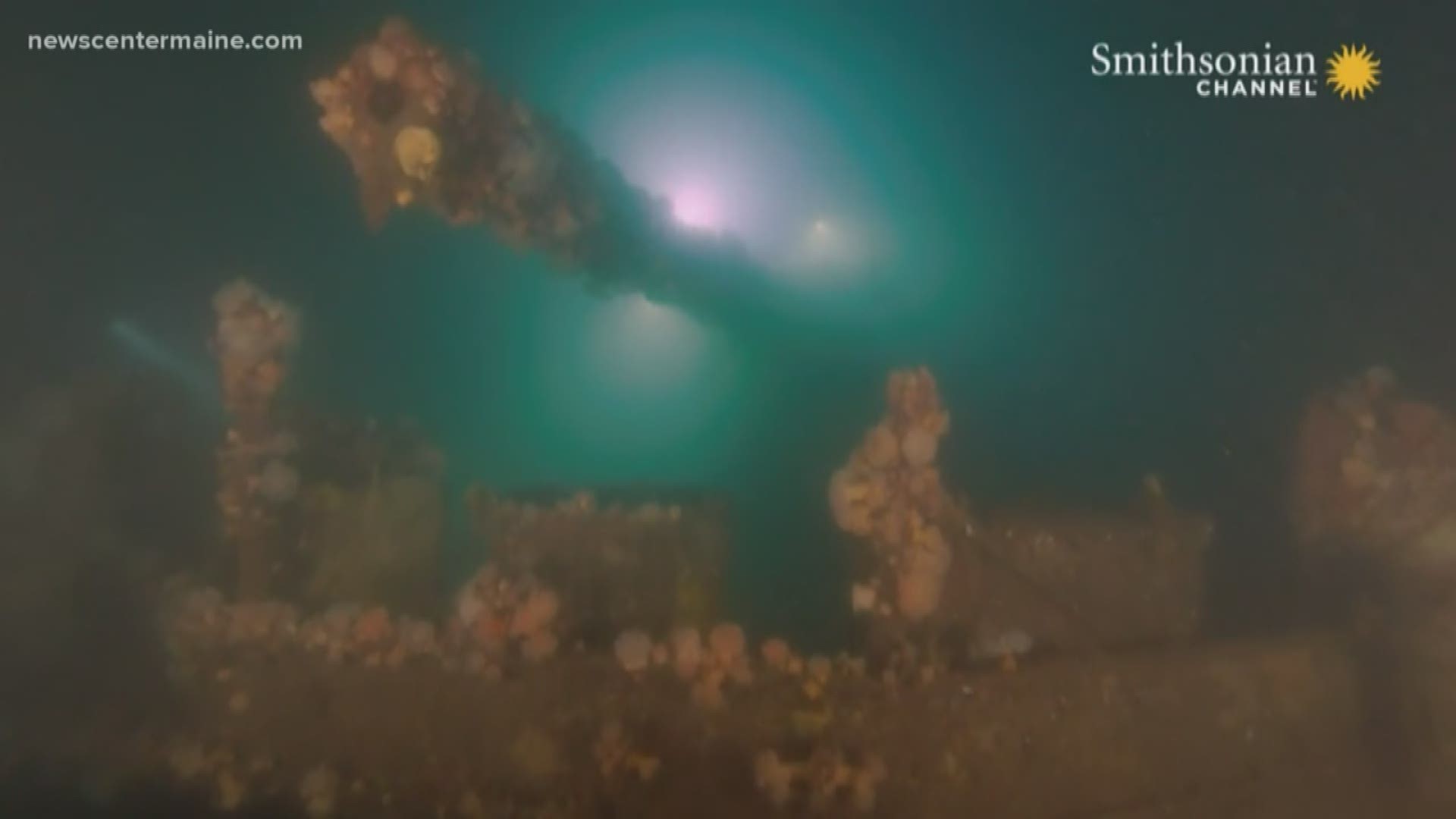PORTLAND, Maine — The ship went down six miles off the coast of Cape Elizabeth, a U.S. Navy patrol boat carrying 62 crew members, only thirteen of whom survived. It sank on April 23, 1945, just two weeks before Germany surrendered in World War II. For decades the Navy believed a boiler had exploded on Eagle 56. That, it turned out, was not the case.
Ryan King, an amateur diver from New Hampshire, is the man who found the evidence that rewrites the history of Eagle 56. Working in the cold and gloom 260 feet below the ocean’s surface, he found the boiler from the ship intact and clearly undamaged. Eagle 56 had not gone down because its own equipment exploded—a German submarine had attacked it.
This is a rich story, one told in the upcoming Smithsonian Channel series called “The Hunt for Eagle 56.” Lone Wolf Media in South Portland produced the documentary, which is fitting—a Maine story told by Maine filmmakers. How did King react when he found the boiler on the ocean floor? What were the challenges producer R. Jameson Smith, a native of Portland, faced in telling the story? Why did the new and accurate version of events matter so much to the families of the men who died on the ship? Watch our interview with Smith and King and learn about the light they’ve shed on this compelling chapter of Maine history.

